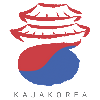Korean Lessons ᚛ Level 3 - Korean for Beginners #2 (Lessons 61 to 90) ᚛ Lesson 88 - Questioning and strong probability in Korean [-지(요)] [-죠]
Questioning and strong probability in Korean [-지(요)] [-죠]
Usage
The -지(요) ending allows us to add a little subtlety to Korean sentences. The suffix -지(요) attaches to the verb in the following manner:
- in the casual style: [Stem]지
- in the polite style: [Stem]지요, generally shortened to [Stem]죠
To say what the other probably knows
One can use -지(요) to say something while telling oneself that the other person probably already knows it, or to simply confirm something that the two people already know.
요즘 BTS가 엄청 유명하죠.
→ BTS is very famous at the moment.
그 사건 당연히 기억하지.
→ I remember the event of course.
지난해 여름은 정말 더웠죠.
→ It was really hot last summer.
- 잘 지내셨어요?
→ Have you been well?
- 저는 잘 지냈죠. 보라 씨는요?
→ I’ve been doing well. And you (Bora)?
그 식당 음식 정말 잘하죠.
→ This restaurant makes good dishes. (Lit: This restaurant makes food really well.)
To request confirmation
It is possible to use the ending -지(요) to ask your listener to confirm something while affirming something. In English, we would translate this as "isn't it?" or "right?".
닭갈비는 맛있지요?
→ The dakgalbi is delicious, isn't it?
그 여자 예쁘지?
→ That woman is beautiful, isn't she?
시간이 늦었네요. 이제 그만하고 집에 가시죠?
→ Oh, it's late. Now we should stop it and go back home, shouldn't we?
가족분들 잘 지내시죠?
→ Your family members are doing well, right?
모두 건강하시죠?
→ Everyone is in good health, right?
민지가 이 선물을 받고 행복하겠지?
→ Minji will be happy to receive this gift, won't she? (Lit: Minji will receive this gift and be happy, won't she?)
그가 내 편지를 읽고 감동받겠지?
→ He will be touched to read my letter, won't he? (Lit: He will read my letter and be touched, won’t he?
The verb 그렇다 is also commonly used with the suffix of questioning -지(요).
그렇지? /
그렇죠?
→ Isn't it? (Lit: It's like that, isn't it?)
이 음식 정말 맛있네요. 그렇죠?
→ This food is really delicious. Isn't it?
When speaking, the expressions 그렇지? and 그렇죠? are very often contracted into 그치? and 그쵸?.
To question oneself (and others)
Learn more
To have to do with -지
Learn more
Summary table of structure
Learn more
Exercises
Learn more
Get two printable eBooks containing EVERYTHING you need to know to master Korean conjugation. You’ll find all the most commonly used verb forms in Korea, explanations of the many exceptions, detailed conjugation tables for 500 essential verbs and adjectives, and over 1,000 example sentences for everyday situations to help you use these verbs correctly. An absolute must-have no matter your level in Korean!
Learn more

